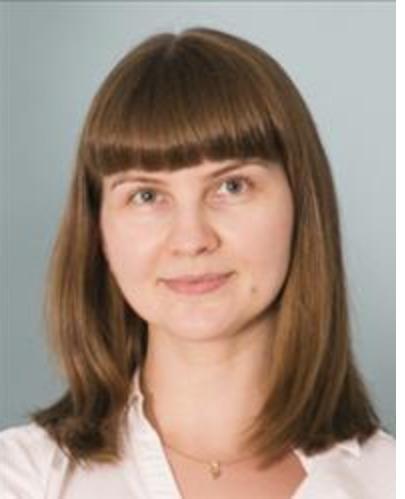Dr. Anastassia Voronova
Assistant Professor

Assistant Professor, Department of Medical Genetics, University of Alberta
Dr. Anastassia Voronova obtained her Ph.D. degree from the University of Ottawa, where she studied the regulation of embryonic stem cells. During her postdoctoral fellowship at the Hospital for Sick Children in the laboratory of Drs. Freda Miller and David Kaplan, she made seminal discoveries on how microenvironment controls neural stem cell biology. In 2018, Dr. Voronova began her independent research program at the University of Alberta focusing on engaging endogenous neural stem cells for brain regeneration and remyelination in multiple sclerosis (MS). She also investigates how defects in genes detected in people with MS may affect MS progression and remyelination. Currently, she holds a Canada Research Chair in neural stem cell biology and was awarded a Sloan Research Fellowship in Neuroscience and Young Scientist Lectureship by the International Society for Neurochemistry in 2023, as well as an outstanding young investigator Jordi Folch-Pi award by the American Society for Neurochemistry in 2022.
Aside from lab work, Anastassia is also involved in promoting excellence in Canadian neuroscience and stem cell research through her involvement in the Canadian Association for Neuroscience, Stem Cell Network, and the American Society for Neurochemistry. She is also recognized as an esteemed mentor at the University having won an Excellence in Mentoring Graduate Students and Postdoctoral Fellows from the University of Alberta.
Learn more about Dr. Voronova
What is the focus of your research? How did you become interested in MS research?
I have always been fascinated how a brain stem cell can develop into various types of cells, such as neurons, astrocytes and especially oligodendrocytes as they play a significant role in MS. We know that people with MS experience a loss of oligodendrocytes, the cells that produce myelin (the protective covering of nerve fibres), and as a result a loss of myelin as well. It’s why MS can be viewed as a neurological disorder. My interest lies in studying how a brain stem cell decides to transform into an oligodendrocyte and more importantly, how to encourage the formation of oligodendrocytes from existing adult brain stem cells in people with MS. This will in turn lead to the production of more myelin and assist in stopping the disease progression and potentially reversing some of the neurological symptoms. My program in essence aims to develop regenerative therapies for a genetically diverse population of people with MS.
What inspires you to continue advancing research in this field?
One of the big questions in the MS field is how to promote remyelination. To answer this question, we need to ask a series of smaller, yet equally important questions. For example, how does the brain stem cell transform into an oligodendrocyte, which in turn makes myelin? What genetic and environmental factors may enhance or impair the formation of oligodendrocytes or myelin? What possible drug candidates might be able to increase central nervous system regeneration? When you look at it from this perspective, you realize that every advancement is a step closer to answering that big question. MS researchers, including myself, are answering these vital questions every day. Through these answers, which you can call discoveries or breakthroughs, we learn more about MS disease onset, progression and recovery. I am inspired by the resilience and incredible spirit of people affected by MS, the work done in my lab by my trainees and the work of my colleagues. I firmly believe that together we can end MS.
How do you hope to change the lives of people living with MS through your research?
We particularly enjoy welcoming people and families affected by MS to tour our lab and see how everyday discoveries are made at the bench. It is during these interactions that my research team sees firsthand how their work offers hope. In turn, we get reminded of the main reason we are pursuing MS research – to help people with MS. We hope our projects and results will contribute to Canadian and global efforts to prevent and end MS.
How important is the support from MS Canada in your research?
I am very grateful to MS Canada for the support of our program. Without the support by organizations like MS Canada it would not be possible for me to engage or to pursue my independent career in MS research. It is thus with the essential support of MS Canada that my MS research program will directly impact the understanding of mechanisms of degeneration and regeneration in MS.